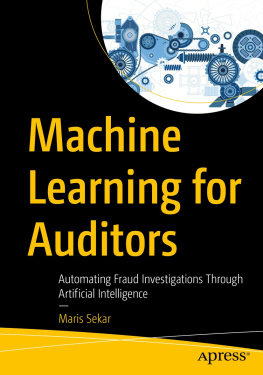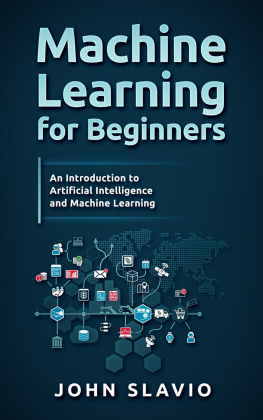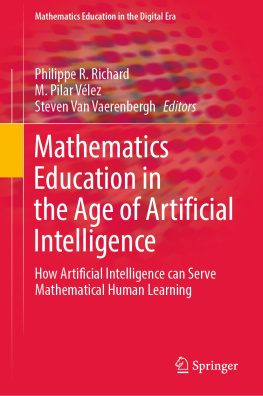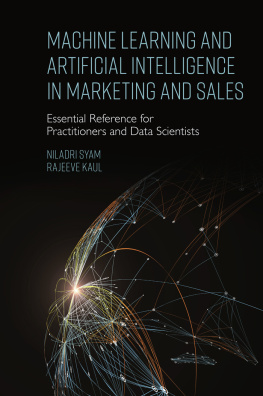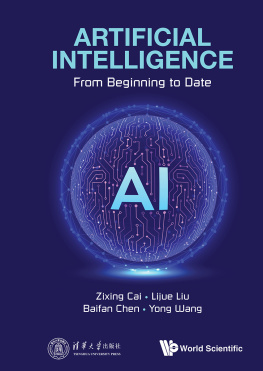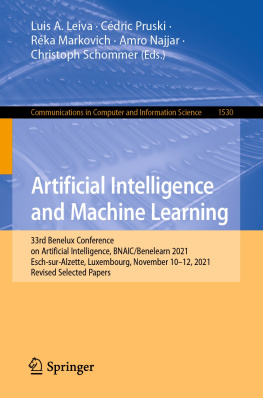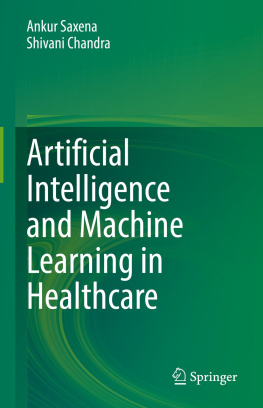Maris Sekar - Machine Learning for Auditors: Automating Fraud Investigations Through Artificial Intelligence
Here you can read online Maris Sekar - Machine Learning for Auditors: Automating Fraud Investigations Through Artificial Intelligence full text of the book (entire story) in english for free. Download pdf and epub, get meaning, cover and reviews about this ebook. year: 2022, publisher: Apress, genre: Computer. Description of the work, (preface) as well as reviews are available. Best literature library LitArk.com created for fans of good reading and offers a wide selection of genres:
Romance novel
Science fiction
Adventure
Detective
Science
History
Home and family
Prose
Art
Politics
Computer
Non-fiction
Religion
Business
Children
Humor
Choose a favorite category and find really read worthwhile books. Enjoy immersion in the world of imagination, feel the emotions of the characters or learn something new for yourself, make an fascinating discovery.
- Book:Machine Learning for Auditors: Automating Fraud Investigations Through Artificial Intelligence
- Author:
- Publisher:Apress
- Genre:
- Year:2022
- Rating:5 / 5
- Favourites:Add to favourites
- Your mark:
- 100
- 1
- 2
- 3
- 4
- 5
Machine Learning for Auditors: Automating Fraud Investigations Through Artificial Intelligence: summary, description and annotation
We offer to read an annotation, description, summary or preface (depends on what the author of the book "Machine Learning for Auditors: Automating Fraud Investigations Through Artificial Intelligence" wrote himself). If you haven't found the necessary information about the book — write in the comments, we will try to find it.
Maris Sekar: author's other books
Who wrote Machine Learning for Auditors: Automating Fraud Investigations Through Artificial Intelligence? Find out the surname, the name of the author of the book and a list of all author's works by series.
Machine Learning for Auditors: Automating Fraud Investigations Through Artificial Intelligence — read online for free the complete book (whole text) full work
Below is the text of the book, divided by pages. System saving the place of the last page read, allows you to conveniently read the book "Machine Learning for Auditors: Automating Fraud Investigations Through Artificial Intelligence" online for free, without having to search again every time where you left off. Put a bookmark, and you can go to the page where you finished reading at any time.
Font size:
Interval:
Bookmark:
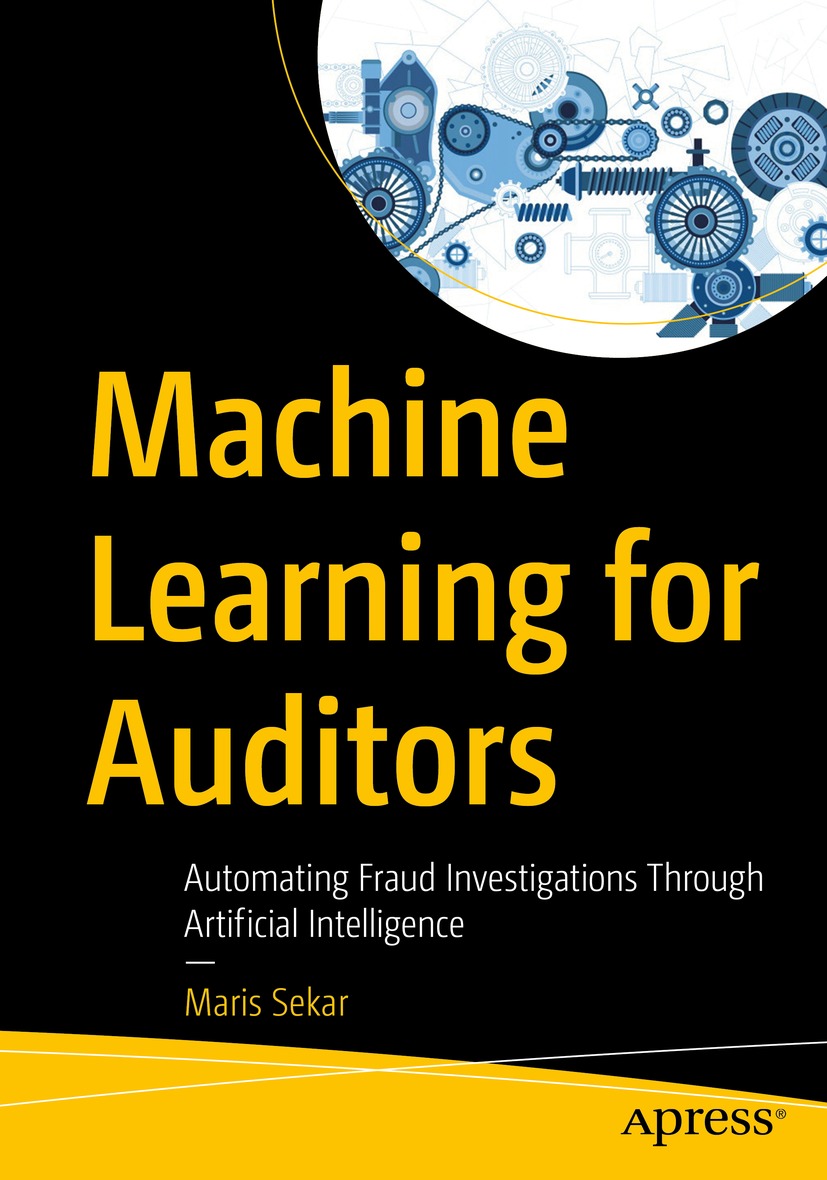

This Apress imprint is published by the registered company APress Media, LLC part of Springer Nature.
The registered company address is: 1 New York Plaza, New York, NY 10004, U.S.A.
To my lovely wife Anusha
and my children Adi and Arya
for giving me valuable family time
to pursue my dreams.
Have you ever pondered over missing a fraudulent transaction? What if there was a smart person out there who found a way to hide a single financial transaction among millions of other transactions? Can you really find a needle in a haystack? These thoughts echoed within me while I was trying to come up with an audit plan to identify transactions that looked suspicious.
Internal auditors are the last line of defense when it comes to protecting an organizations confidentiality, integrity, and availability of information assets. Auditors are often portrayed as professionals verifying if processes, procedures, and controls are in place to mitigate the business risks. What if auditors can also bring in additional value to the organization as a trusted advisor?
The complexity and size of organizational information assets are ever increasing. The chance of finding fraudulent transactions using traditional audit methods is small and decreases over time. Scalable and sustainable solutions need to be incorporated by the internal audit department in order to make a significant advance in the fight against the organizational threat actors.
With the help of artificial intelligence, machine learning, and data science, the challenges faced by traditional audit methods can be overcome. This book provides a systematic way to apply artificial intelligence to the field of internal audit. It is especially useful for those with domain expertise in the field of auditing, but lack the technical expertise required for artificial intelligence.
The book is structured to introduce the reader to internal auditors evolved role as trusted advisors. The current challenges and solutions faced by the internal audit team are illustrated. This is followed by a primer to machine learning and data science concepts. Data visualization and storytelling are then covered in a great level of detail to support the sharing of audit results. Finally, practical applications of the artificial intelligence concepts are described and demonstrated in terms of recipes. Each recipe is accompanied with working code examples that can be easily incorporated into audits.
I hope you have as much fun reading it and applying it in your practice, as I had in writing the book.
Any source code or other supplementary material referenced by the author in this book is available to readers on GitHub via the books product page at https://github.com/Apress/machine-learning-for-auditors.
is a professional computer engineer, Senior Data Scientist (Data Science Council of America), and Certified Information Systems Auditor (ISACA). He has a passion for using storytelling to communicate on high-risk items within an organization to enable better decision-making and drive operational efficiencies. He has cross-functional work experience in various domains such as risk management, oil and gas, and utilities. Maris has led many initiatives for organizations such as PricewaterhouseCoopers LLP, Shell Canada Ltd., and TC Energy. His love for data has motivated him to win awards, write articles, and publish papers on applied machine learning and data science.
is a retired academic from the Utah State Universitys (USU) Data Analytics and Management Information Systems Department in the Huntsman School of Business. He has over 30 years of higher education teaching experience. At USU, he taught for 27 years in the classroom and distance education over satellite. He taught a variety of classes at the undergraduate, graduate, and doctorate levels, but he specializes in applied technology education.
Dr. Paper has competency in several programming languages, but his focus is currently on deep learning with Python in the TensorFlow-Colab Ecosystem. He has published extensively on machine learning, including such books as Data Science Fundamentals for Python and MongoDB (2018, Apress), Hands-on Scikit-Learn for Machine Learning Applications: Data Science Fundamentals with Python (2019, Apress), and TensorFlow 2.x in the Colaboratory Cloud: An Introduction to Deep Learning on Googles Cloud Service (2021, Apress). He has also published more than 100 academic articles.
Besides growing up in family businesses, Dr. Paper has worked for Texas Instruments, DLS Inc., and the Phoenix Small Business Administration. He has performed Information Services (IS) consulting work for IBM, AT&T, Octel, the Utah Department of Transportation, and the Space Dynamics Laboratory. He has worked on research projects with several corporations, including Caterpillar, Fannie Mae, Comdisco, IBM, RayChem, Ralston Purina, and Monsanto. He maintains contacts in corporations such as Google, Micron, Oracle, and Goldman Sachs.
Font size:
Interval:
Bookmark:
Similar books «Machine Learning for Auditors: Automating Fraud Investigations Through Artificial Intelligence»
Look at similar books to Machine Learning for Auditors: Automating Fraud Investigations Through Artificial Intelligence. We have selected literature similar in name and meaning in the hope of providing readers with more options to find new, interesting, not yet read works.
Discussion, reviews of the book Machine Learning for Auditors: Automating Fraud Investigations Through Artificial Intelligence and just readers' own opinions. Leave your comments, write what you think about the work, its meaning or the main characters. Specify what exactly you liked and what you didn't like, and why you think so.

